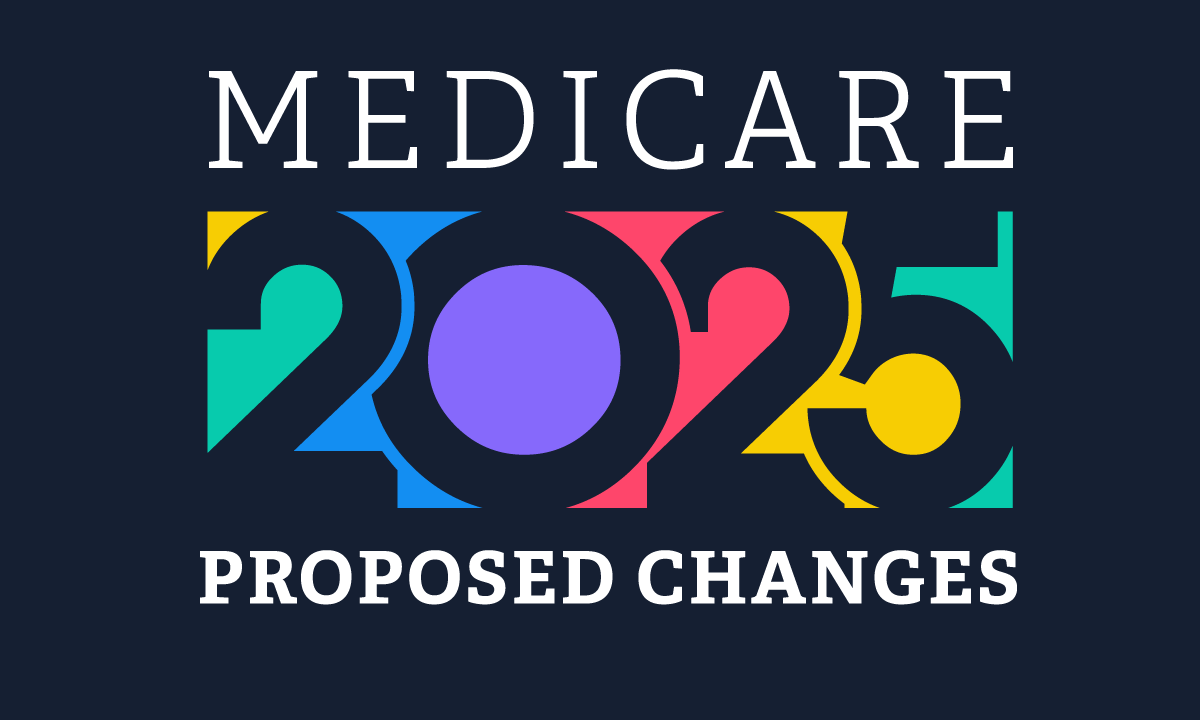
On July 10, 2024, the Centers for Medicare & Medicaid Services (CMS) issued its payment proposal for the coming year. Focused on professional services, the Medicare Physician Fee Schedule (PFS) ruling provides a crystal ball into the expected payments for medical practices for the coming year. While it may seem like a broken record, the proposal incorporates a decline in reimbursement for physicians in most settings.
The proposed PFS conversion factor is $32.36, a decrease of $0.93 (2.80%) from the current conversion factor of $33.29. The reimbursement proposed for federally qualified health centers (FQHCs) and rural health clinics (RHCs) is much more positive; the productivity-adjusted market basket* update is an upwards of 3.5%.
The agency’s announcement pertains to Medicare reimbursement. Because so many commercial insurance companies base their rates on the formula that drives Medicare rates (the Resource-based Relative Value Scale (RBRVS)), the government’s decree has far-reaching implications.
Let’s unpack the specifics included in the proposed rule:
- Expansion of telemedicine coverage to include International Normalized Ratio (INR) monitoring and caregiver training services.
- Confirmation that audio-only telemedicine may be furnished if, and when, the patient is not capable of using, or does not consent to use, video; supervision requirements for incident-to services provided by telemedicine are clarified to include “immediately available” for the required direct supervision.
- New coding and payment for caregiver training for direct care services and support and caregiver behavior management and modification training, all available to be performed via telehealth.
- Expanded payment for G2211 – the add-on code new in 2024, used for the patient/provider relationship – when an office visit is performed on the same day as an annual wellness visit, vaccine administration, or any Medicare Part B preventive service.
- New code (GCDRA) and payment for the administration of an Atherosclerotic Cardiovascular Disease (ASCVD) risk assessment service, as well as coverage for subsequent risk management services.
- Updated coverage for colorectal cancer screening to remove barium enema and include Computed Tomography (CT) Colonography for Medicare beneficiaries.
- Expansion of payment for services provided by opioid treatment programs, to include payment for social determinants of health (SDOH) risk assessments.
- Migration to general supervision (only) of physical therapy and occupational therapy assistants (PTAs and OTAs, respectively) for private-practice therapists, aimed to improving access in rural areas. Current signature requirements for therapy orders are also proposed to be lessened.
- Direct payment for care coordination services provided by FQHCs and RHCs; continuation of remote audio-visual direct supervision allowance and extension of telemedicine services to incorporate non-behavioral health services payable as provided in these health centers.
- Novel coding and payment for advanced primary care management services via new G-codes, stratified into three levels based on patient medical and social complexity; primary care practices would need to use a specific model of care delivery and a performance measurement requirement as a condition of accessing the new coding scheme.
- For surgeons, an add-on code, GPOC1, when post-operative care services are provided to patients for whom another surgeon performed the surgery, with the federal agency’s pledge to continue to evaluate the payment method for global surgical packages to ensure equitable distribution of payment.
- Expansion of behavioral health services, to include new coding and payment for safety planning interventions for patients in crisis, and coverage of services performed by psychologists, social workers, and other clinicians specializing in mental health.
- Limited, yet important alterations proposed for the Merit-based Incentive Payment System; eligible clinicians and the practice managers supporting them should review the program changes proposed to start on January 1, 2025.
Finally, there is some welcome flexibility added to the overpayment provisions required by the federal government with an outer band of 180 days from the initial discovery of the overpayment under certain circumstances. Expect additional guidance to better understand the proposed requirements regarding reporting and returning overpayments.
If any of these changes may affect your practice in 2025, dig in for more information. The comment period is open for 60 days. The final ruling will be released by the federal government on or about November 1, giving medical practices just two months to absorb the changes.
FOR MORE INFORMATION:
Summary of Changes: PFS Proposed Rule and Rule 1807 Fact Sheet; Full Text of Proposed Rule (2,248 pages)
*An index that measures the change in price, over time, of the same mix of goods and services purchased in the base period.
The contents of The Sentinel are intended for educational/informational purposes only and do not constitute legal advice. Policyholders are urged to consult with their personal attorney for legal advice, as specific legal requirements may vary from state to state and/or change over time.
